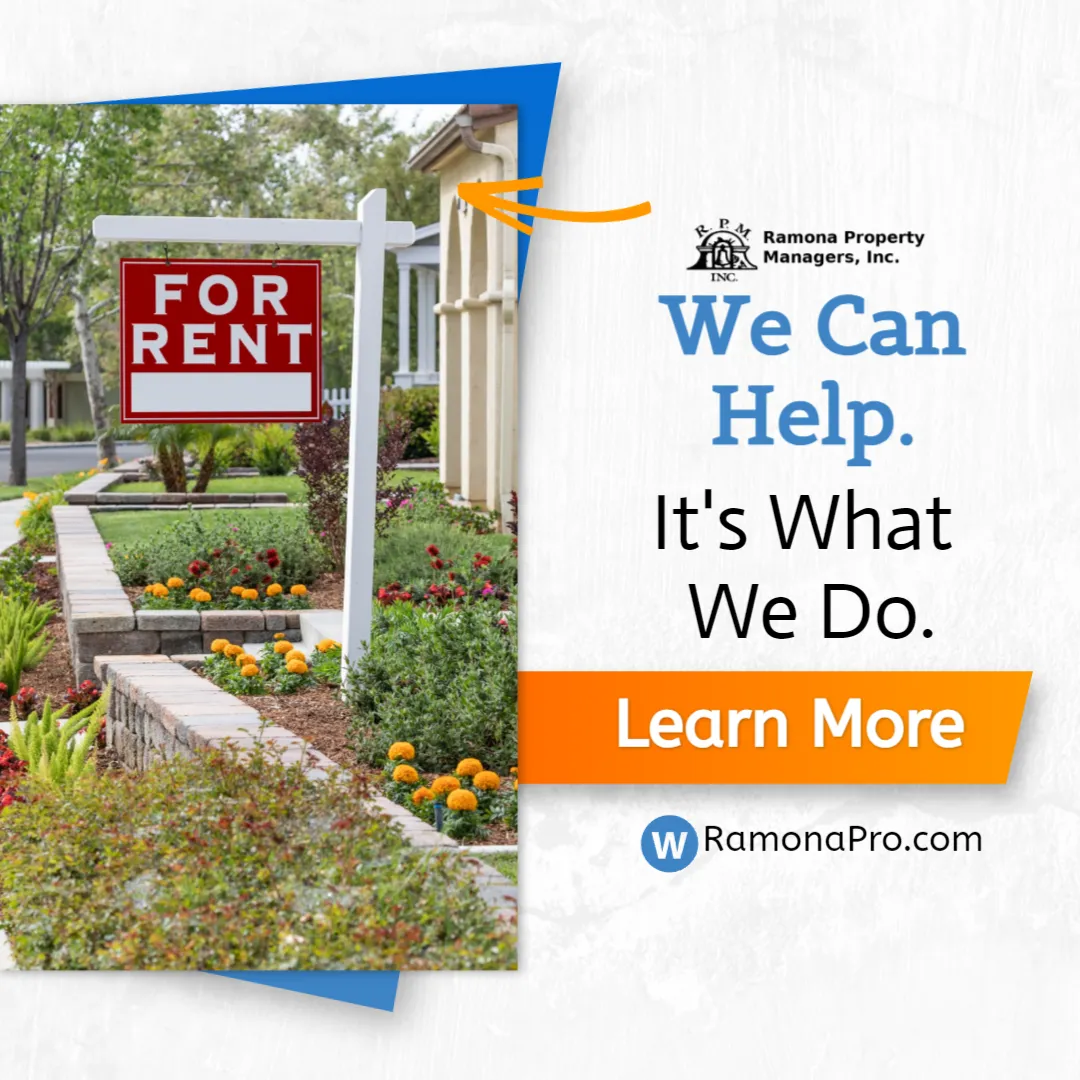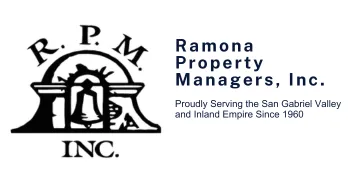Management Matters
Expert tips, tricks, and techniques for effective property management."
Property Management

The Importance of Effective Communication in Property Management
In the realm of property management, effective communication is not just a skill—it's a cornerstone of success. At Ramona Property Managers, Inc., we understand that clear and consistent communication between property managers and residents fosters a harmonious community, ensures smooth operations, and enhances overall satisfaction. In this blog post, we'll explore the significance of effective communication in property management and offer practical tips and strategies for improving communication channels.
Why Communication Matters
1. Building Trust and Relationships
- Trust is the foundation of any successful relationship, and property management is no exception. Clear communication helps build trust between property managers and residents, creating an environment where concerns are openly shared and promptly addressed.
2. Ensuring Timely Problem-Solving
- Quick resolution of issues is a direct result of effective communication. When residents can easily report maintenance problems or other concerns, property managers can act swiftly, preventing minor issues from escalating into major problems.
3. Enhancing Resident Satisfaction
- Residents who feel heard and informed are more likely to be satisfied with their living conditions. Regular updates, transparent policies, and open channels for feedback contribute to a positive living experience and higher retention rates.
4. Preventing Misunderstandings
- Miscommunications can lead to conflicts and dissatisfaction. By ensuring that all parties are on the same page through clear and consistent communication, property managers can prevent misunderstandings and foster a peaceful community.
Strategies for Effective Communication
1. Regular Newsletters
- Purpose: Newsletters are an excellent way to keep residents informed about community events, policy changes, maintenance schedules, and other important updates.
- Tips: Ensure newsletters are visually appealing, concise, and informative. Highlight key information and provide contact details for further inquiries.
2. Community Meetings
- Purpose: Regular meetings provide a platform for open dialogue between property managers and residents, allowing for direct communication and immediate feedback.
- Tips: Schedule meetings at convenient times for most residents and provide an agenda in advance. Encourage participation and ensure that all voices are heard.
3. Digital Platforms
- Purpose: Utilizing digital tools such as email, property management apps, and social media can streamline communication and make it easier for residents to stay informed and connected.
- Tips: Choose user-friendly platforms that residents are comfortable with. Regularly update digital channels with important information and respond promptly to inquiries.
4. Surveys and Feedback Forms
- Purpose: Surveys and feedback forms allow residents to express their opinions and provide suggestions for improvement.
- Tips: Keep surveys short and focused, and ensure anonymity to encourage honest feedback. Act on the feedback received and communicate any resulting changes or improvements.
5. Clear Signage and Notices
- Purpose: Signage and notices in common areas ensure that important information is visible and easily accessible to all residents.
- Tips: Use clear and simple language, and update notices regularly to reflect current information.
6. Personal Touch
- Purpose: Personalized communication, such as welcome letters for new residents or follow-up calls after maintenance requests, can make residents feel valued and appreciated.
- Tips: Train staff to use residents' names and remember personal details that can help in building stronger relationships.
Effective communication is the lifeblood of property management. By prioritizing clear and consistent communication, property managers can build trust, enhance resident satisfaction, and create a thriving community. At Ramona Property Managers, Inc., we are committed to fostering an environment where communication flows freely and all residents feel heard and valued. By implementing strategies such as regular newsletters, community meetings, and leveraging digital platforms, property managers can ensure that their communication is both effective and impactful.
Tenant Relations

The Importance of Effective Communication in Property Management
In the realm of property management, effective communication is not just a skill—it's a cornerstone of success. At Ramona Property Managers, Inc., we understand that clear and consistent communication between property managers and residents fosters a harmonious community, ensures smooth operations, and enhances overall satisfaction. In this blog post, we'll explore the significance of effective communication in property management and offer practical tips and strategies for improving communication channels.
Why Communication Matters
1. Building Trust and Relationships
- Trust is the foundation of any successful relationship, and property management is no exception. Clear communication helps build trust between property managers and residents, creating an environment where concerns are openly shared and promptly addressed.
2. Ensuring Timely Problem-Solving
- Quick resolution of issues is a direct result of effective communication. When residents can easily report maintenance problems or other concerns, property managers can act swiftly, preventing minor issues from escalating into major problems.
3. Enhancing Resident Satisfaction
- Residents who feel heard and informed are more likely to be satisfied with their living conditions. Regular updates, transparent policies, and open channels for feedback contribute to a positive living experience and higher retention rates.
4. Preventing Misunderstandings
- Miscommunications can lead to conflicts and dissatisfaction. By ensuring that all parties are on the same page through clear and consistent communication, property managers can prevent misunderstandings and foster a peaceful community.
Strategies for Effective Communication
1. Regular Newsletters
- Purpose: Newsletters are an excellent way to keep residents informed about community events, policy changes, maintenance schedules, and other important updates.
- Tips: Ensure newsletters are visually appealing, concise, and informative. Highlight key information and provide contact details for further inquiries.
2. Community Meetings
- Purpose: Regular meetings provide a platform for open dialogue between property managers and residents, allowing for direct communication and immediate feedback.
- Tips: Schedule meetings at convenient times for most residents and provide an agenda in advance. Encourage participation and ensure that all voices are heard.
3. Digital Platforms
- Purpose: Utilizing digital tools such as email, property management apps, and social media can streamline communication and make it easier for residents to stay informed and connected.
- Tips: Choose user-friendly platforms that residents are comfortable with. Regularly update digital channels with important information and respond promptly to inquiries.
4. Surveys and Feedback Forms
- Purpose: Surveys and feedback forms allow residents to express their opinions and provide suggestions for improvement.
- Tips: Keep surveys short and focused, and ensure anonymity to encourage honest feedback. Act on the feedback received and communicate any resulting changes or improvements.
5. Clear Signage and Notices
- Purpose: Signage and notices in common areas ensure that important information is visible and easily accessible to all residents.
- Tips: Use clear and simple language, and update notices regularly to reflect current information.
6. Personal Touch
- Purpose: Personalized communication, such as welcome letters for new residents or follow-up calls after maintenance requests, can make residents feel valued and appreciated.
- Tips: Train staff to use residents' names and remember personal details that can help in building stronger relationships.
Effective communication is the lifeblood of property management. By prioritizing clear and consistent communication, property managers can build trust, enhance resident satisfaction, and create a thriving community. At Ramona Property Managers, Inc., we are committed to fostering an environment where communication flows freely and all residents feel heard and valued. By implementing strategies such as regular newsletters, community meetings, and leveraging digital platforms, property managers can ensure that their communication is both effective and impactful.
Compliance

The Importance of Effective Communication in Property Management
In the realm of property management, effective communication is not just a skill—it's a cornerstone of success. At Ramona Property Managers, Inc., we understand that clear and consistent communication between property managers and residents fosters a harmonious community, ensures smooth operations, and enhances overall satisfaction. In this blog post, we'll explore the significance of effective communication in property management and offer practical tips and strategies for improving communication channels.
Why Communication Matters
1. Building Trust and Relationships
- Trust is the foundation of any successful relationship, and property management is no exception. Clear communication helps build trust between property managers and residents, creating an environment where concerns are openly shared and promptly addressed.
2. Ensuring Timely Problem-Solving
- Quick resolution of issues is a direct result of effective communication. When residents can easily report maintenance problems or other concerns, property managers can act swiftly, preventing minor issues from escalating into major problems.
3. Enhancing Resident Satisfaction
- Residents who feel heard and informed are more likely to be satisfied with their living conditions. Regular updates, transparent policies, and open channels for feedback contribute to a positive living experience and higher retention rates.
4. Preventing Misunderstandings
- Miscommunications can lead to conflicts and dissatisfaction. By ensuring that all parties are on the same page through clear and consistent communication, property managers can prevent misunderstandings and foster a peaceful community.
Strategies for Effective Communication
1. Regular Newsletters
- Purpose: Newsletters are an excellent way to keep residents informed about community events, policy changes, maintenance schedules, and other important updates.
- Tips: Ensure newsletters are visually appealing, concise, and informative. Highlight key information and provide contact details for further inquiries.
2. Community Meetings
- Purpose: Regular meetings provide a platform for open dialogue between property managers and residents, allowing for direct communication and immediate feedback.
- Tips: Schedule meetings at convenient times for most residents and provide an agenda in advance. Encourage participation and ensure that all voices are heard.
3. Digital Platforms
- Purpose: Utilizing digital tools such as email, property management apps, and social media can streamline communication and make it easier for residents to stay informed and connected.
- Tips: Choose user-friendly platforms that residents are comfortable with. Regularly update digital channels with important information and respond promptly to inquiries.
4. Surveys and Feedback Forms
- Purpose: Surveys and feedback forms allow residents to express their opinions and provide suggestions for improvement.
- Tips: Keep surveys short and focused, and ensure anonymity to encourage honest feedback. Act on the feedback received and communicate any resulting changes or improvements.
5. Clear Signage and Notices
- Purpose: Signage and notices in common areas ensure that important information is visible and easily accessible to all residents.
- Tips: Use clear and simple language, and update notices regularly to reflect current information.
6. Personal Touch
- Purpose: Personalized communication, such as welcome letters for new residents or follow-up calls after maintenance requests, can make residents feel valued and appreciated.
- Tips: Train staff to use residents' names and remember personal details that can help in building stronger relationships.
Effective communication is the lifeblood of property management. By prioritizing clear and consistent communication, property managers can build trust, enhance resident satisfaction, and create a thriving community. At Ramona Property Managers, Inc., we are committed to fostering an environment where communication flows freely and all residents feel heard and valued. By implementing strategies such as regular newsletters, community meetings, and leveraging digital platforms, property managers can ensure that their communication is both effective and impactful.
Compliance

The Importance of Effective Communication in Property Management
In the realm of property management, effective communication is not just a skill—it's a cornerstone of success. At Ramona Property Managers, Inc., we understand that clear and consistent communication between property managers and residents fosters a harmonious community, ensures smooth operations, and enhances overall satisfaction. In this blog post, we'll explore the significance of effective communication in property management and offer practical tips and strategies for improving communication channels.
Why Communication Matters
1. Building Trust and Relationships
- Trust is the foundation of any successful relationship, and property management is no exception. Clear communication helps build trust between property managers and residents, creating an environment where concerns are openly shared and promptly addressed.
2. Ensuring Timely Problem-Solving
- Quick resolution of issues is a direct result of effective communication. When residents can easily report maintenance problems or other concerns, property managers can act swiftly, preventing minor issues from escalating into major problems.
3. Enhancing Resident Satisfaction
- Residents who feel heard and informed are more likely to be satisfied with their living conditions. Regular updates, transparent policies, and open channels for feedback contribute to a positive living experience and higher retention rates.
4. Preventing Misunderstandings
- Miscommunications can lead to conflicts and dissatisfaction. By ensuring that all parties are on the same page through clear and consistent communication, property managers can prevent misunderstandings and foster a peaceful community.
Strategies for Effective Communication
1. Regular Newsletters
- Purpose: Newsletters are an excellent way to keep residents informed about community events, policy changes, maintenance schedules, and other important updates.
- Tips: Ensure newsletters are visually appealing, concise, and informative. Highlight key information and provide contact details for further inquiries.
2. Community Meetings
- Purpose: Regular meetings provide a platform for open dialogue between property managers and residents, allowing for direct communication and immediate feedback.
- Tips: Schedule meetings at convenient times for most residents and provide an agenda in advance. Encourage participation and ensure that all voices are heard.
3. Digital Platforms
- Purpose: Utilizing digital tools such as email, property management apps, and social media can streamline communication and make it easier for residents to stay informed and connected.
- Tips: Choose user-friendly platforms that residents are comfortable with. Regularly update digital channels with important information and respond promptly to inquiries.
4. Surveys and Feedback Forms
- Purpose: Surveys and feedback forms allow residents to express their opinions and provide suggestions for improvement.
- Tips: Keep surveys short and focused, and ensure anonymity to encourage honest feedback. Act on the feedback received and communicate any resulting changes or improvements.
5. Clear Signage and Notices
- Purpose: Signage and notices in common areas ensure that important information is visible and easily accessible to all residents.
- Tips: Use clear and simple language, and update notices regularly to reflect current information.
6. Personal Touch
- Purpose: Personalized communication, such as welcome letters for new residents or follow-up calls after maintenance requests, can make residents feel valued and appreciated.
- Tips: Train staff to use residents' names and remember personal details that can help in building stronger relationships.
Effective communication is the lifeblood of property management. By prioritizing clear and consistent communication, property managers can build trust, enhance resident satisfaction, and create a thriving community. At Ramona Property Managers, Inc., we are committed to fostering an environment where communication flows freely and all residents feel heard and valued. By implementing strategies such as regular newsletters, community meetings, and leveraging digital platforms, property managers can ensure that their communication is both effective and impactful.
Real Estate Services

The Importance of Effective Communication in Property Management
In the realm of property management, effective communication is not just a skill—it's a cornerstone of success. At Ramona Property Managers, Inc., we understand that clear and consistent communication between property managers and residents fosters a harmonious community, ensures smooth operations, and enhances overall satisfaction. In this blog post, we'll explore the significance of effective communication in property management and offer practical tips and strategies for improving communication channels.
Why Communication Matters
1. Building Trust and Relationships
- Trust is the foundation of any successful relationship, and property management is no exception. Clear communication helps build trust between property managers and residents, creating an environment where concerns are openly shared and promptly addressed.
2. Ensuring Timely Problem-Solving
- Quick resolution of issues is a direct result of effective communication. When residents can easily report maintenance problems or other concerns, property managers can act swiftly, preventing minor issues from escalating into major problems.
3. Enhancing Resident Satisfaction
- Residents who feel heard and informed are more likely to be satisfied with their living conditions. Regular updates, transparent policies, and open channels for feedback contribute to a positive living experience and higher retention rates.
4. Preventing Misunderstandings
- Miscommunications can lead to conflicts and dissatisfaction. By ensuring that all parties are on the same page through clear and consistent communication, property managers can prevent misunderstandings and foster a peaceful community.
Strategies for Effective Communication
1. Regular Newsletters
- Purpose: Newsletters are an excellent way to keep residents informed about community events, policy changes, maintenance schedules, and other important updates.
- Tips: Ensure newsletters are visually appealing, concise, and informative. Highlight key information and provide contact details for further inquiries.
2. Community Meetings
- Purpose: Regular meetings provide a platform for open dialogue between property managers and residents, allowing for direct communication and immediate feedback.
- Tips: Schedule meetings at convenient times for most residents and provide an agenda in advance. Encourage participation and ensure that all voices are heard.
3. Digital Platforms
- Purpose: Utilizing digital tools such as email, property management apps, and social media can streamline communication and make it easier for residents to stay informed and connected.
- Tips: Choose user-friendly platforms that residents are comfortable with. Regularly update digital channels with important information and respond promptly to inquiries.
4. Surveys and Feedback Forms
- Purpose: Surveys and feedback forms allow residents to express their opinions and provide suggestions for improvement.
- Tips: Keep surveys short and focused, and ensure anonymity to encourage honest feedback. Act on the feedback received and communicate any resulting changes or improvements.
5. Clear Signage and Notices
- Purpose: Signage and notices in common areas ensure that important information is visible and easily accessible to all residents.
- Tips: Use clear and simple language, and update notices regularly to reflect current information.
6. Personal Touch
- Purpose: Personalized communication, such as welcome letters for new residents or follow-up calls after maintenance requests, can make residents feel valued and appreciated.
- Tips: Train staff to use residents' names and remember personal details that can help in building stronger relationships.
Effective communication is the lifeblood of property management. By prioritizing clear and consistent communication, property managers can build trust, enhance resident satisfaction, and create a thriving community. At Ramona Property Managers, Inc., we are committed to fostering an environment where communication flows freely and all residents feel heard and valued. By implementing strategies such as regular newsletters, community meetings, and leveraging digital platforms, property managers can ensure that their communication is both effective and impactful.


